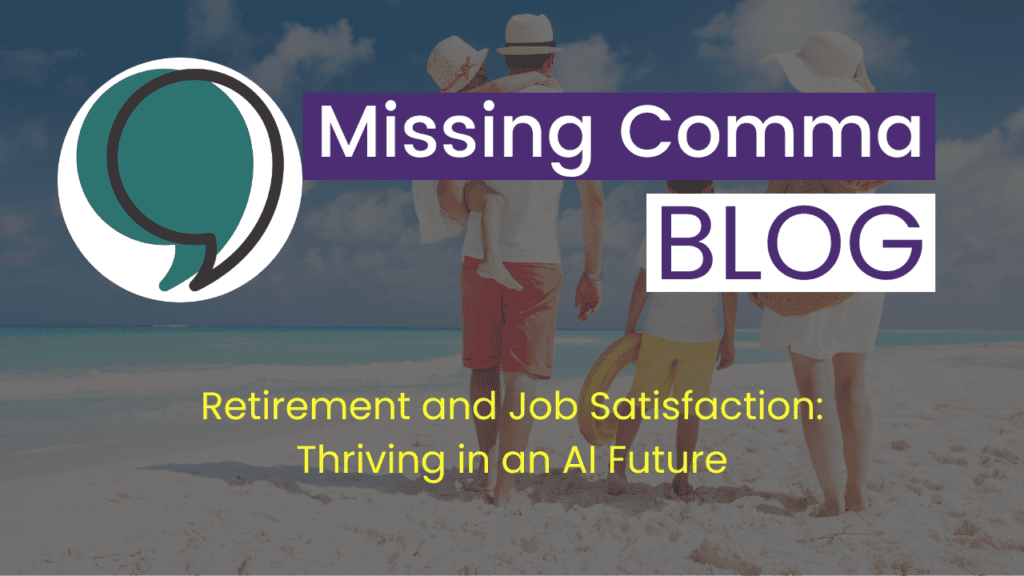
The Historical Perspective: Keynes’ Prediction and Today’s Reality
When I first read about John Maynard Keynes and his prediction of a 15-hour workweek, I remember thinking, “Wow, where do I sign up for that?” Imagine a world where you’d clock in for just a couple of days and then have the rest of the week to pursue hobbies, spend time with family, or maybe even volunteer. It seemed to blend the concept of permanent retirement and job satisfaction. We could have the best of both worlds. Back in the 1930s, Keynes, a renowned economist, believed that technology would advance to such a degree that our work hours would drastically shrink by the year 2000. Instead, here we are, over two decades past that mark, and not only are we still working 40 hours (or more), but many of us feel more burnt out than ever. What happened?

Let’s start with Keynes’ vision. He saw the rapid industrial progress of his time and thought, logically, that machines would eventually handle most of the tedious labor, leaving humans free to enjoy life. It’s the kind of utopian future that technologists have promised for decades.
But there’s a catch that Keynes perhaps didn’t anticipate—capitalism’s relentless drive for more. Sure, technology has replaced many manual jobs. The factory lines of the 1930s are now run by robots, and we have machines that can perform complex surgeries or analyze data faster than any human ever could.
But instead of this leading to a decrease in our work hours, we just invented new kinds of work.
Take managerial jobs, for instance. I’ve been there, stuck in an office or a store, pushing paper, and eventually digital documents, from one end of the desk to the other. It’s not exactly what Keynes had in mind when he imagined a future where we’d be free from the drudgery of work. Yet, that’s where a lot of us ended up—in jobs that are often more about managing the work of others than doing meaningful, fulfilling work ourselves. It’s ironic, really. We’ve created jobs to fill the time that technology was supposed to free up.
And let’s talk about the quality of these jobs. Administrative roles, middle management, and other similar positions might come with fancy titles. They may even, but not always, pay fairly well. But many of them are what we now call “bullshit jobs”—jobs that don’t seem to have a real purpose. They pay the bills, sure, but they often leave us feeling empty, wondering what the point of it all is. I can tell you from long personal experience that nothing drains your soul faster than spending eight or more hours a day on work that feels utterly meaningless.
So why didn’t we get that 15-hour workweek (Much less Ferris’ much written about 4-hour week)? Well, part of the problem is that the benefits of technological advancements weren’t distributed the way Keynes might have imagined. Instead of everyone enjoying more free time, the gains went largely to those at the top—the business owners, the shareholders. They got richer while the rest of us got busier. And then there’s the fact that in many industries, the introduction of technology actually created more work, not less. Think about it: with the internet, we’re now expected to be “on” 24/7, answering emails, managing social media, keeping up with an endless stream of information. It’s exhausting and, to my thinking, outrageous.
Now, I don’t want to paint an entirely bleak picture. Technology has undeniably made some aspects of our lives easier and more efficient. But it’s also important to recognize that it’s led to new kinds of stress, especially in the workplace. I remember when I first started using project management software. I thought it would make my job easier, and in some ways, it did. But it also meant I was suddenly expected to keep track of a hundred tiny details that, frankly, just added to my workload. So instead of freeing me up to do more meaningful work, the technology just made my job more complicated.
Looking back, I think Keynes was right about one thing: technology could reduce our work hours. But for that to happen, we need to rethink how we structure our jobs and distribute the benefits of technological progress. Until then, the 15-hour workweek remains a dream—a tantalizing glimpse of a future that might have been, but never quite was.
What is AI’s Impact on Retirement and Job Satisfaction?
When I first heard that AI might start replacing jobs, I didn’t think much of it. Honestly, it seemed like something out of a sci-fi movie—futuristic, but not exactly something that would affect me in the real world. But as I started reading more and seeing the headlines about AI creeping into almost every industry, I realized this wasn’t just a tech trend. It was something that could really upend the way we think about work, especially as we approach retirement.
Let’s start with the obvious: AI is already changing the job market, and not just in factories or warehouses where robots are now assembling cars faster than any human could. AI is making its way into white-collar jobs too—legal research, financial analysis, even content creation. It’s wild to think about, but there’s a chance that some of the jobs we’ve always considered safe could be at risk. And if you’re looking down the barrel of retirement, you might need to think about how this could affect your plans.
First off, let’s talk retirement. Many of us have this vision of working until we’re ready to hang up our hats, then enjoying the golden years. But what happens when AI accelerates that timeline, not by giving us financial freedom, but by making our roles obsolete?
Picture this: you’ve been working in a middle-management role for decades, and suddenly your company announces that they’re implementing AI tools to “increase efficiency.” That’s corporate speak for “we’re going to need fewer people.”
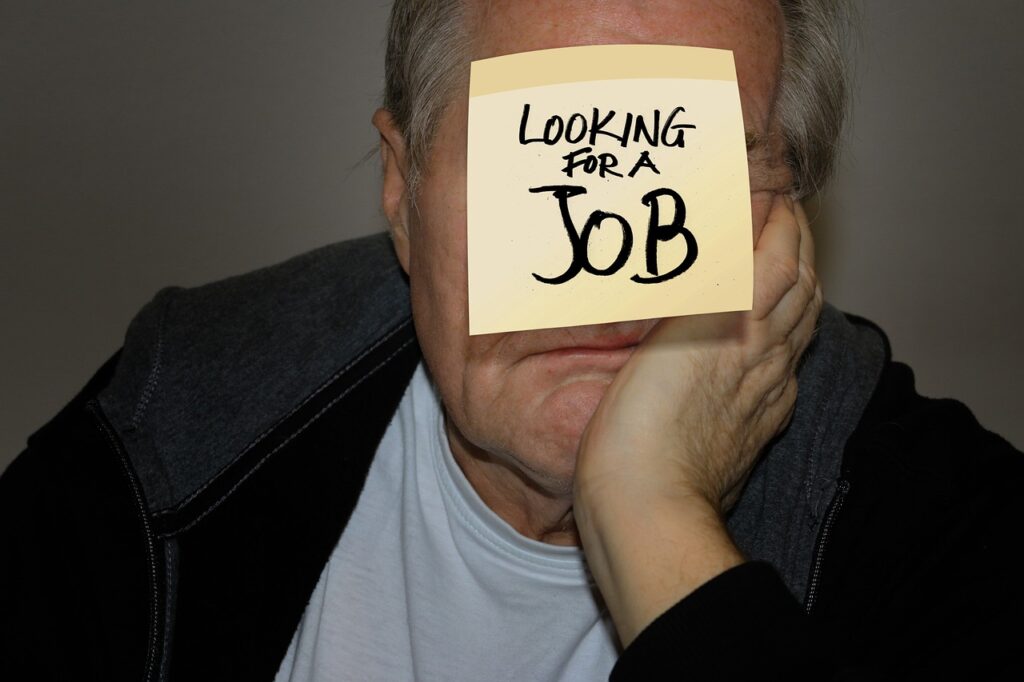
If you’re close to retirement age, this could mean being pushed out sooner than expected. Whether you’re financially ready or not. And for folks like us, who are in their 40’s or 50s, finding a new job isn’t a walk in the park. The stress of unplanned early retirement can wreak havoc on both finances and mental health.
On the flip side, there’s the issue of job satisfaction. Have you noticed that as AI takes over more mundane tasks, those roles we were told would become more strategic and fulfilling have left many of us babysitting the AI?
For example, in marketing, AI can handle data crunching, which should leave humans to focus on creative campaigns. That would be a win, right?
But now instead of managing campaigns, you’re managing the AI that does the work. Instead of focusing on the big-picture strategy that you loved, you’re stuck troubleshooting the AI and dealing with the constant pressure to prove your value in a role that, let’s be honest, feels a lot less meaningful.
And that’s where job satisfaction takes a nosedive. For years, we’ve been told that as long as you work hard and keep up with your industry, you’ll have a job until you decide to retire. That turned out to be a lie to the Boomers and it’s getting even worse in the world of AI. Suddenly, it’s not just how well you know your job, but how well you can adapt to new technology—technology that might be designed to replace you eventually. If you’re someone who finds meaning and satisfaction in your work, this shift can feel downright demoralizing.
It’s also worth considering the financial implications. If AI does lead to early retirement—whether voluntary or forced—that can throw a serious wrench into your financial plans. Maybe you were counting on a few more years of income to pad your retirement savings. Or maybe you were planning to ease into retirement with part-time work, only to find that AI has made those jobs obsolete. It’s a lot to think about, and it’s no wonder that more people are starting to feel anxious about what the future holds.
Now, I’m not saying it’s all doom and gloom. There are opportunities here too. For those who are able to adapt, there’s the chance to learn new skills and stay relevant in the workforce longer. But let’s be real—it’s not easy to reinvent yourself late in your career. I’ve tried learning some of the newer tech tools, and while I’ve picked up a few things, I still feel like I’m playing catch-up. It’s frustrating, especially when I think about how much simpler things used to be.
So, where does that leave us? Well, it’s clear that AI is going to play a big role in shaping not just our careers, but our retirement too. The key, I think, is to stay informed and proactive. If you’re nearing retirement, now’s the time to really think about what your future looks like in an AI-driven world. Are there ways to leverage AI to make your job easier or extend your career? Or is it time to start planning for an early exit?
Whatever the case, it’s crucial to be honest with yourself about what’s happening in your industry and what you need to do to protect your job satisfaction and retirement plans. Because one thing’s for sure—AI isn’t going away, and it’s going to continue changing the way we work in ways we might not fully understand yet.
How Can We Find Meaning at Work?
When I first started working, I was driven by the same motivations most of us have—earning a living, paying the bills, maybe even getting a promotion or two along the way. But after a decade or so in the workforce, something started to nag at me. I realized that the job I was doing every day didn’t really bring me any sense of purpose. It was just a means to an end, a way to get from Monday to Friday and collect a paycheck. I began to wonder, was there more to work than this? Is it really possible to find meaning in what we do every day?
That’s when I stumbled upon the concept of Ikigai. If you haven’t heard of it, Ikigai is a Japanese term that roughly translates to “the reason you get out of bed in the morning.” It’s about finding that sweet spot where what you love, what you’re good at, what the world needs, and what you can be paid for all intersect. Easier said than done, right? But it’s an idea that stuck with me, especially as I watched colleagues around me get caught up in the grind, day in and day out, with little to show for it besides stress and a never-ending to-do list.
The search for meaning in work is something I think more people are starting to consider, especially as AI and automation take over more tasks. Sure, AI can handle repetitive, mundane work, which in theory should free us up to do more meaningful, creative things. But the reality isn’t always so straightforward. Many of us end up managing the AI, making sure it’s doing its job correctly, rather than engaging in the kind of work that lights us up. It’s like trading one kind of drudgery for another.

It’s made me rethink what job satisfaction really means. For years, I thought it was about climbing the ladder, getting promotions, and maybe even retiring early. But now, I’m starting to see that true satisfaction comes from doing work that feels meaningful—work that aligns with your values and gives you a sense of purpose. This is where Ikigai comes into play. It’s not just about finding a job that pays well or offers good benefits; it’s about finding work that makes you feel alive.
Of course, this isn’t easy, especially in today’s job market where AI and automation are changing the landscape. But I believe it’s more important than ever to focus on finding that sense of purpose. It might mean making some tough choices, like shifting careers or learning new skills to stay relevant. For me, I started a business on the side that I worked from a spare bedroom. It got me to a place that when the job just wasn’t worth it anymore, I was able to transition without too much strife.
But it’s also true that finding purpose doesn’t always mean a complete career overhaul. Sometimes, it’s about making small adjustments to your current role. Maybe it’s taking on projects that align more closely with your passions or finding ways to mentor others in your field. Back when I was in a corpaorate role, mentoring younger colleagues was incredibly rewarding. It’s reminded me that work isn’t just about the tasks we complete but also about the impact we have on others.
So, where does that leave us in this AI-driven world? I think the key is to stay focused on what really matters to you. Whether it’s creativity, helping others, or making a difference in your community, hold onto that as you navigate the changes AI brings. Because at the end of the day, job satisfaction isn’t just about what you do; it’s about why you do it. And if AI can help us clear away the clutter and focus on what really matters, then maybe, just maybe, it’s not such a bad thing after all.
But it’s up to us to ensure that we’re not just working for the sake of it, but working towards something that truly gives our lives meaning. That’s the kind of work-life balance that really matters—one where work isn’t just a necessity, but a source of fulfillment. And isn’t that what we’re all really searching for?
How Do We prepare for an AI-Dominated Workforce?
When I first realized that AI was going to be more than just a buzzword, I felt a mix of excitement and dread. Imean, I’ve seen The Matrix and Terminator. On one hand, the potential for AI to make work more efficient, to free us from tedious tasks, was pretty cool. I’ve found it helpful in brainstorming ideas.
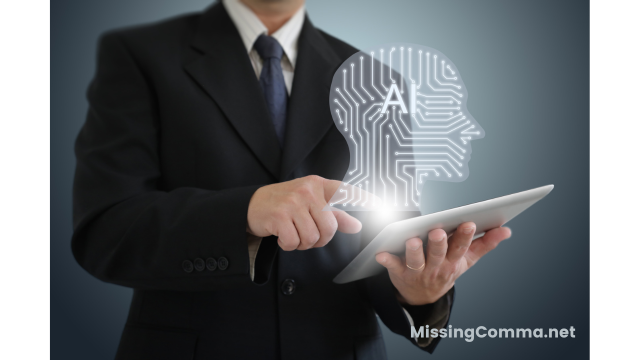
But on the other hand, the idea that AI could take over jobs was unsettling, to say the least. We still haven’t figured out how to create meaning ful work for thousands of displaced textile, auto or steel workers. The folks whose jobs were exprted to China, India, Mexico and elsewhere. What will we do with all the middle-managment folks who stand to be “outsourced” by AI?
The more I learned, the more it became clear that AI isn’t just a passing trend; it’s reshaping industries and, in turn, the entire workforce. The question isn’t whether AI will impact your job—it’s how and when.
So how do we prepare for an AI-dominated workforce? The first step, as I see it, is acceptance. We need to internalize that AI is here to stay and that it will continue to evolve. Fighting it or ignoring it isn’t going to make it go away. Instead, we need to embrace the change and figure out how to stay relevant in this new landscape.
One of the best pieces of advice I’ve come across is to focus on what makes us uniquely human. AI is incredible at processing data, performing repetitive tasks, and even generating creative content. But what it lacks are the distinctly human qualities like empathy, creativity, and (at least for now) complex problem-solving. These are the skills we need to double down on if we want to thrive alongside AI.
For example, I’ve started to invest more time in developing my emotional intelligence. This isn’t just about being “nice”; it’s about understanding people’s motivations, building strong relationships, and navigating complex social dynamics—things AI just can’t do. At least not yet. In roles where interaction with others is key, like management or sales, these skills can set you apart from a machine and make you indispensable.
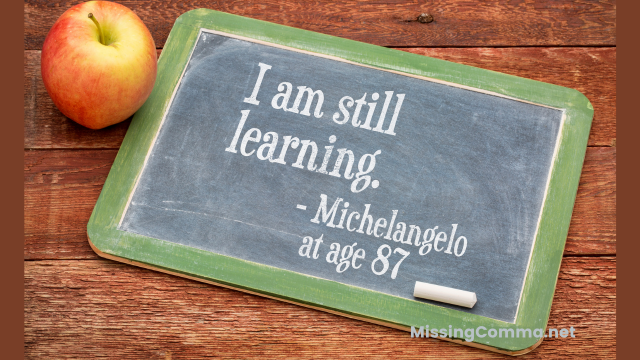
Another critical area is continuous learning. The pace of technological change means that the skills we have today might not be relevant tomorrow. I’ll admit that it’s a lttle harder as I get older but I’ve made it a habit to regularly update my skill set, whether that’s through online courses, attending workshops, or simply staying informed about industry trends. It’s about being proactive rather than reactive. If you’re waiting for your company to send you to a training session, you’re already behind. Seek out the learning opportunities that will keep you ahead of the curve.
Then there’s the practical side of preparing for an AI-dominated world—financial planning. The truth is, AI might force some of us into early retirement or a career change. That’s a tough pill to swallow, especially if you’re not financially prepared. I’ve been taking a hard look at my retirement savings, considering the worst-case scenarios. It’s not fun, but it’s necessary. If AI disrupts your industry, you’ll want to have a financial cushion to give you time to adapt without panic.
For those who are closer to retirement, this might also mean looking at options for semi-retirement or part-time work that AI can’t easily replace. That’s the path I took and it’s been good so far.
I’ve seen some colleagues transition into consulting roles, where they can leverage their decades of experience in ways that AI can’t replicate. It’s a smart move—letting AI handle the grunt work while they focus on high-level strategy and advice.
And let’s not forget about work-life balance. As AI takes over more tasks, there’s a temptation to let it push us to be constantly productive. And let’s be honest, you’re company would probably be delighted to have you tying to keep the plates spinning 24/7. But I’ve found that it’s more important than ever to set boundaries. Just because AI can work constantly doesn’t mean we should. Taking the time to unplug, recharge, and focus on what really matters outside of work is crucial. After all, if AI is taking over some of the workload, it should be freeing us up to enjoy life more, not less.
Finally, there’s the question of mindset. Preparing for an AI-dominated workforce isn’t just about practical skills; it’s about being adaptable and resilient. Change is hard, especially when it feels like the ground is shifting beneath your feet. But those who thrive in this new world will be the ones who see opportunities where others see threats. I’m learning to approach AI with curiosity rather than fear, seeing it as a tool that can augment my abilities rather than replace them.
In the end, preparing for an AI-dominated workforce is about more than just survival. It’s about positioning yourself to thrive. By focusing on the uniquely human skills, committing to lifelong learning, and maintaining a balanced approach to work and life, we can navigate this transition with confidence. AI may be powerful, but it’s our human qualities that will ensure we stay relevant, fulfilled, and successful in this new era of work.
Where Do We Go From Here?
As we stand on the brink of this AI-driven future, it’s clear that the workforce—and our place in it—is changing faster than ever before. John Maynard Keynes’ prediction of a 15-hour workweek may have missed the mark, but the underlying question remains the same: How do we find meaning and satisfaction in a world where technology is reshaping the very fabric of work? Whether it’s facing early retirement, adapting to new roles, or striving to find purpose in what we do, the challenges are real. Yet, so too are the opportunities for those who are willing to embrace change, learn new skills, and focus on what makes us uniquely human.
The future may be uncertain, but it doesn’t have to be frightening. By staying informed, proactive, and adaptable, we can navigate the shifts in our careers and retirement with confidence. But part of being prepared is also being financially secure. After all, in a world where AI might disrupt industries overnight, having a solid financial foundation isn’t just a good idea—it’s essential.
If you’re ready to take the next step in securing your future, I encourage you to explore the resources available to help you build that financial fortress. As a token of that commitment, I’m offering a free copy of the book, “UnFck Your Retirement”, a comprehensive guide designed to help you weather the financial storms that may come your way. Whether you’re planning for retirement or just want to safeguard your savings, this book offers practical advice and strategies to ensure you’re prepared for whatever the future holds.
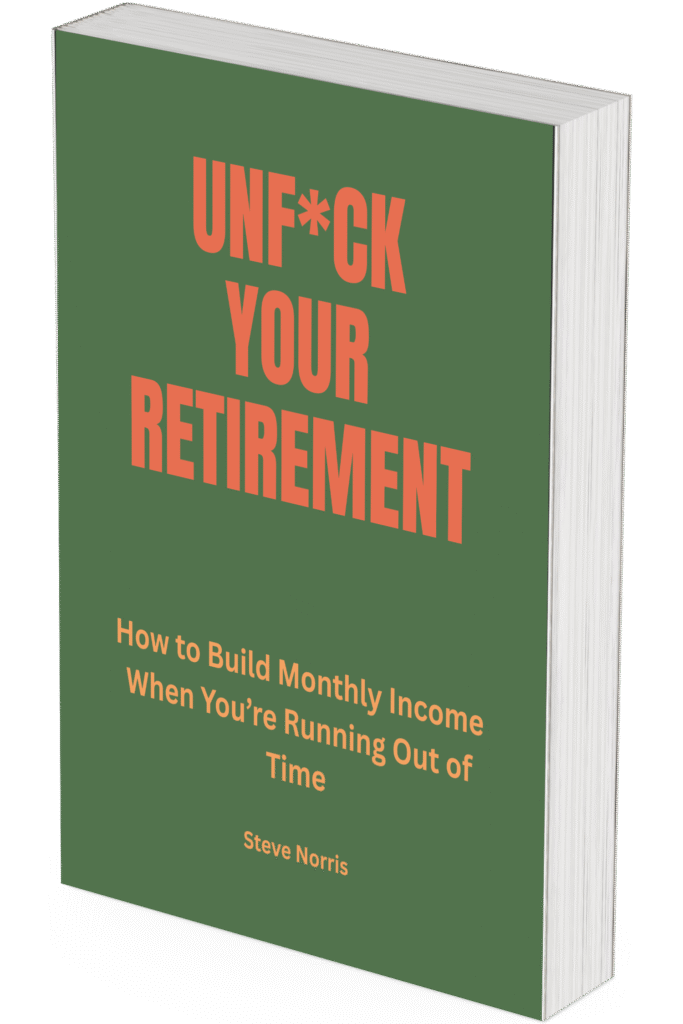
Don’t wait until it’s too late—take control of your financial future today. Download your free copy now and start building the security and peace of mind that will help you thrive, no matter what changes AI and the future of work may bring.
